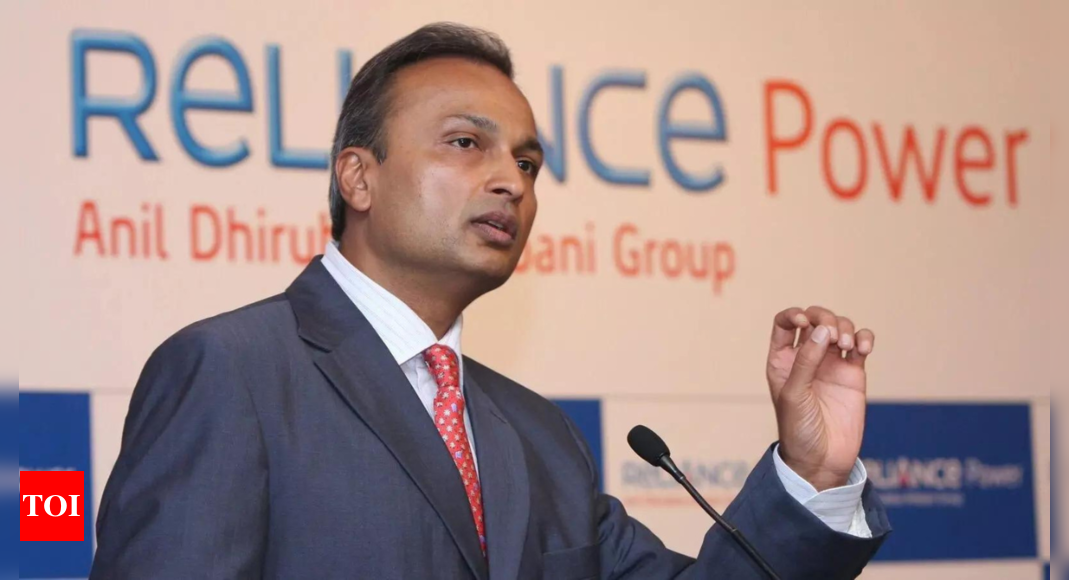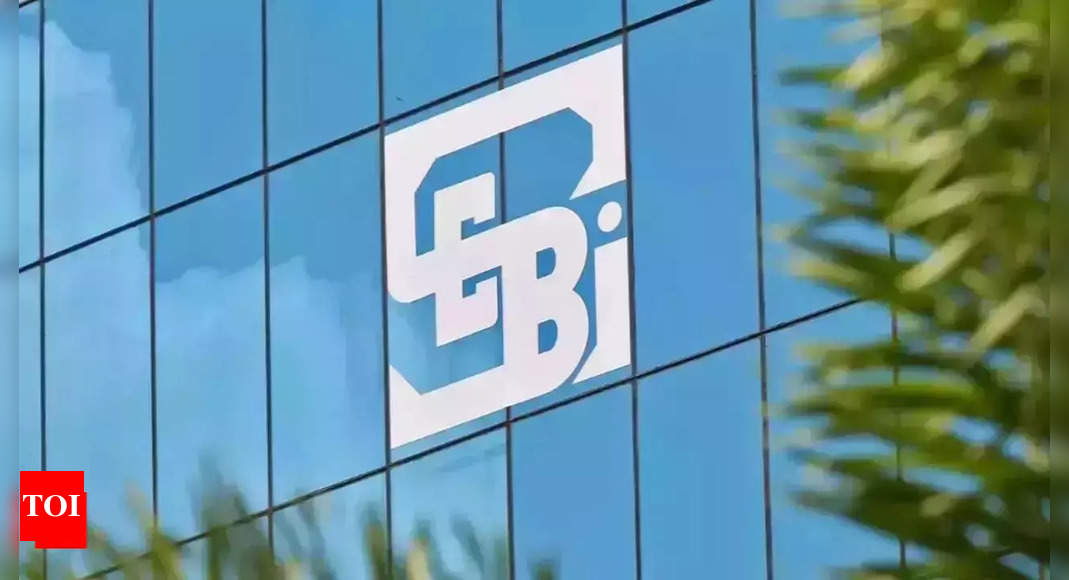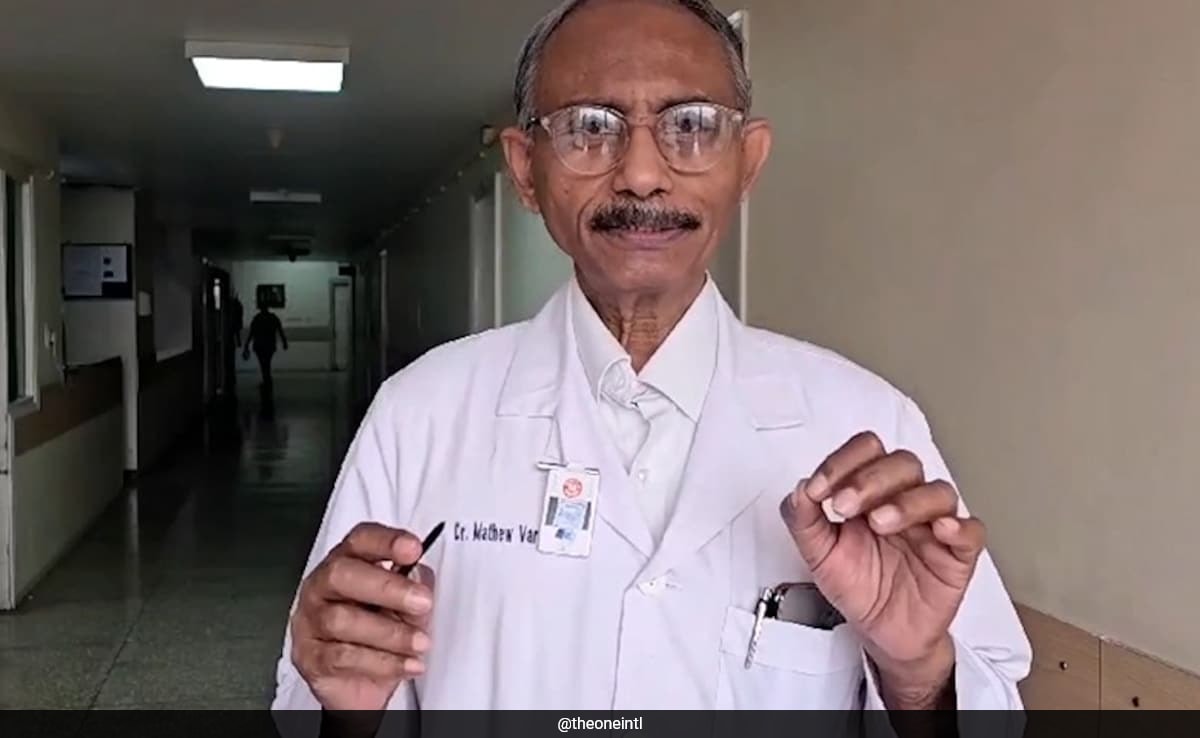
MUMBAI: Markets regulator Sebi has banned ADAG chairman Anil Ambani, along with 24 entities associated with him, from the securities market for five years and imposed a total fine of Rs 624 crore for diversion of funds from his group company Reliance Home Finance. Ambani, Amit Bapna, Ravindra Sudhalkar and Pinkesh R Shah (all former top executives at RHFL) have also been barred from associating with any listed entity for five years.
“By preponderance of probability, the mastermind behind the fraudulent scheme is the chairman of ADAG – Anil Ambani.It is also apparent that (Bapna, Sudhalkar and Shah), KMPs (key managerial personnel) of the company, played an active role in perpetrating the fraudulent scheme,” Sebi noted.
Sebi’s 222-page investigation report detailed how Ambani and the three former executives had loaned large sums of money to various entities connected to the Anil D Ambani Group (ADAG) that was never paid back.
The Sebi probe, which follows interim directions issued on Feb 11, 2022, completes regulatory action in the case. The report also drew from the observations of PwC (the former statutory auditor of RHFL) and of Grant Thornton (the forensic auditor appointed by Bank of Baroda, the lead bank of the consortium of lenders of RHFL).
Earlier this year, National Financial Regulatory Authority, the regulator for auditors and audit firms of large and listed companies, had banned chartered accountants of two companies related to Reliance Capital and levied a penalty detailing how funds were diverted and the auditors failed in discharging their responsibility.
Sebi’s investigation into the affairs of RHFL was mainly for the company’s operations during the years 2016-17 to 2018-19. The regulator’s report also drew from the observations of PwC (the former statutory auditor of RHFL) and of Grant Thornton (the forensic auditor appointed by Bank of Baroda, the lead bank of the consortium of lenders of RHFL).
Ambani and his associates had used a loan product called general purpose working capital loans (GPC loans) to advance funds to several entities without following proper lending norms. Between FY18 and FY19, GPC loans by RHFL had jumped nearly 9-fold: From Rs 900 crore to Rs 7,900 crore, Sebi quoted from PwC’s letter to RHFL management.
The PwC letter had also mentioned that several of these borrowers had limited or no revenue, negative or limited net worth, no other business than onward lending of loans from RHFL, etc. The letter also pointed out that some of these borrowers were incorporated shortly before disbursement of loans by RHFL. And “in some cases, the loan sanction dates were found to be on the same date as the date of application for loan or even before the dates of applications made by these borrowers”.
PwC had also pointed out to RHFL’s management that some of the borrowers had email domain addresses of Reliance ADA Group, brand name of “Reliance” was appearing in the name of borrower company, directors of such companies were employees of Reliance ADA Group, and multiple borrower companies had same registered address. The auditor asked why these companies should not be classified as group companies.
Soon after, PwC had resigned as RHFL’s statutory auditor, reported its decision to the ministry of corporate affairs and informed Sebi.
In its forensic audit reports, Grant Thornton had pointed out that of about Rs 14,578 crore that RHFL had disbursed to various entities as GPC loans, about Rs 12,488 crore had gone to 47 entities which were suspected to be linked to ADAG Group. Over time some of these loans found their way back to these related entities, often used for ever-greening of the loans. Several of the group companies were involved in these operations that include Reliance Capital (RHFL’s holding company), Reliance Commercial Finance, Reliance Infrastructure, Reliance Big Entertainment, Reliance Broadcast Network and others.
The forensic auditors could not trace back the end use of loans aggregating about Rs 1,935 crore “due to information limitations”, the Sebi report noted. The regulator is in the process of quantifying the illegal gains from this fraudulent operation and “action may be initiated in accordance with the law”, the order said. Ambani and the 24 associated entities have 45 days to pay the penalty.
“By preponderance of probability, the mastermind behind the fraudulent scheme is the chairman of ADAG – Anil Ambani.It is also apparent that (Bapna, Sudhalkar and Shah), KMPs (key managerial personnel) of the company, played an active role in perpetrating the fraudulent scheme,” Sebi noted.
Sebi’s 222-page investigation report detailed how Ambani and the three former executives had loaned large sums of money to various entities connected to the Anil D Ambani Group (ADAG) that was never paid back.
The Sebi probe, which follows interim directions issued on Feb 11, 2022, completes regulatory action in the case. The report also drew from the observations of PwC (the former statutory auditor of RHFL) and of Grant Thornton (the forensic auditor appointed by Bank of Baroda, the lead bank of the consortium of lenders of RHFL).
Earlier this year, National Financial Regulatory Authority, the regulator for auditors and audit firms of large and listed companies, had banned chartered accountants of two companies related to Reliance Capital and levied a penalty detailing how funds were diverted and the auditors failed in discharging their responsibility.
Sebi’s investigation into the affairs of RHFL was mainly for the company’s operations during the years 2016-17 to 2018-19. The regulator’s report also drew from the observations of PwC (the former statutory auditor of RHFL) and of Grant Thornton (the forensic auditor appointed by Bank of Baroda, the lead bank of the consortium of lenders of RHFL).
Ambani and his associates had used a loan product called general purpose working capital loans (GPC loans) to advance funds to several entities without following proper lending norms. Between FY18 and FY19, GPC loans by RHFL had jumped nearly 9-fold: From Rs 900 crore to Rs 7,900 crore, Sebi quoted from PwC’s letter to RHFL management.
The PwC letter had also mentioned that several of these borrowers had limited or no revenue, negative or limited net worth, no other business than onward lending of loans from RHFL, etc. The letter also pointed out that some of these borrowers were incorporated shortly before disbursement of loans by RHFL. And “in some cases, the loan sanction dates were found to be on the same date as the date of application for loan or even before the dates of applications made by these borrowers”.
PwC had also pointed out to RHFL’s management that some of the borrowers had email domain addresses of Reliance ADA Group, brand name of “Reliance” was appearing in the name of borrower company, directors of such companies were employees of Reliance ADA Group, and multiple borrower companies had same registered address. The auditor asked why these companies should not be classified as group companies.
Soon after, PwC had resigned as RHFL’s statutory auditor, reported its decision to the ministry of corporate affairs and informed Sebi.
In its forensic audit reports, Grant Thornton had pointed out that of about Rs 14,578 crore that RHFL had disbursed to various entities as GPC loans, about Rs 12,488 crore had gone to 47 entities which were suspected to be linked to ADAG Group. Over time some of these loans found their way back to these related entities, often used for ever-greening of the loans. Several of the group companies were involved in these operations that include Reliance Capital (RHFL’s holding company), Reliance Commercial Finance, Reliance Infrastructure, Reliance Big Entertainment, Reliance Broadcast Network and others.
The forensic auditors could not trace back the end use of loans aggregating about Rs 1,935 crore “due to information limitations”, the Sebi report noted. The regulator is in the process of quantifying the illegal gains from this fraudulent operation and “action may be initiated in accordance with the law”, the order said. Ambani and the 24 associated entities have 45 days to pay the penalty.








